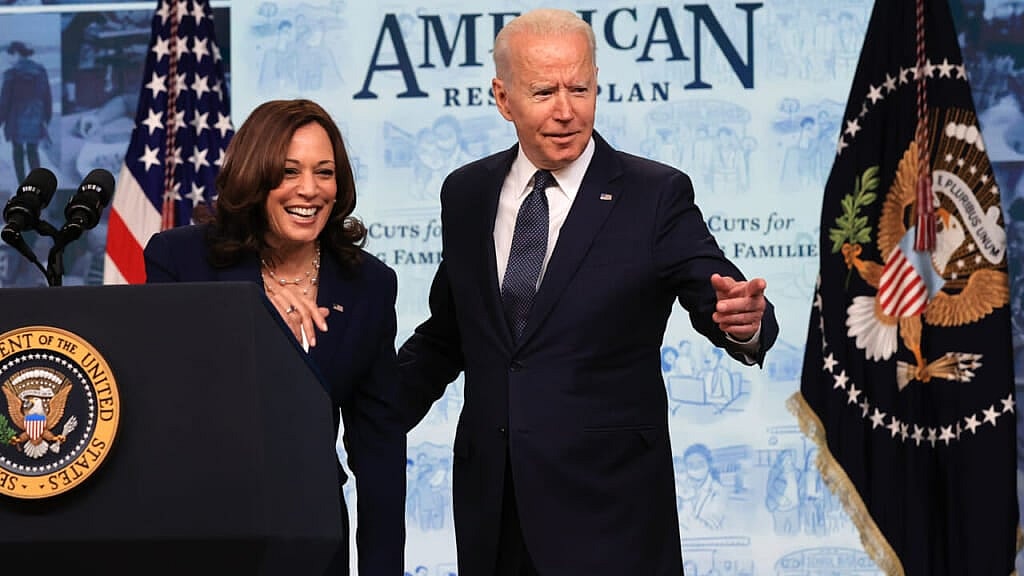According to some presidents of Historically Black Colleges and Universities (HBCUs), there’s a welcomed phenomenon happening on their campuses. Enrollment, particularly that of the 2022-2023 freshman class, has increased exponentially. However, with that expansion to the student population comes a new challenge for HBCU campuses: less available housing.
The unexpected result of heightened interest in HBCUs — particularly in the wake of the 2020 uprisings for racial justice — is now something that historically Black institutions are actively working on to find a sustainable fix for.
Morgan State University is currently leasing several hotels for students, even as they opened a new 670-bedroom dormitory in 2022, according to its president David Wilson. The school is also expecting a new dorm in 2024 with 604 additional new beds.

About 20% of the freshman class at Morgan State are first-generation college students. A source with knowledge of enrollment at Tennessee State University said that similarly, in 2019, 30% of the freshman class comprised first-generation college students.
The COVID-19 school lockdowns are said to be a factor for the enrollment spike, says former Dillard University president, Walter Kimbrough.
“Post-COVID … people are looking to be on campus and to have that full campus experience, particularly those students who have spent two years in virtual learning in high school,” he told theGrio.
Kimbrough currently serves as interim executive director of the new Black Men’s Research Institute at Morehouse College, another prestigious HBCU that has seen an explosion in enrollment. Kimbrough said that when he was president of Dillard, the campus experienced a similar difficulty as a result of an increased student population that led the university to house students in hotels. He calls the housing challenges of today a “good problem” to have.
“It’s a challenge, and people will come up with strategies like using hotels and those kinds of things to deal with the short term. But long term, this is a good thing,” Kimbrough told theGrio.
In Nashville, Fisk University is leaning into creative ways to address its housing shortage. This fall, new and innovative dorm rooms will be available, including railcar storage containers that have been converted into functioning dorm rooms with kitchens and bathrooms to meet the growing room demand at these campuses.

The current enrollment spike for the nation’s HBCUs is in contrast to the years of declined enrollment. The 2018-2019 school year saw one of the worst HBCU enrollment seasons, according to a report from NBC News. The decline in enrollment, which reportedly cost HBCUs upwards of tens of millions of dollars, was partly due to affordability as the Department of Education made it more difficult to qualify for the PLUS Loan Program after tightening credit standards. HBCUs relied on the federal money that mostly parents borrowed to fund their children’s education.
Tony Allen, president of Delaware State University and the chair of President Joe Biden’s White House Board of Advisors on Historically Black Colleges and Universities, said his campus has also seen a rise in student enrollment.
“We are at about a 33% growth rate over the last five years, and just last year, we had a 10% growth rate in that respect,” he told theGrio.
Allen attributes some of the momentum for HBCUs to Beyoncé’s 2018 Coachella music festival performance, which incorporated a heavy HBCU theme. “[Beyoncé] was kind of the forerunner to what was to come with respect to how the president and the vice president have built this capacity for us,” he said.
In the 117th Congress, HBCUs also received record funding to the tune of $6 billion, largely through federal funding in pandemic relief via the American Rescue Plan Act, notes U.S. Rep. Bobby Scott of Virginia. The Biden White House has also championed record funding for HBCUs.

“We got more in federal money just in two years. And so my focus has been to make sure they get well funded [and] to make sure they can address their needs. And we’re very successful,” Congressman Scott, who sits on the House Budget Committee, told theGrio. “And our challenge is to continue that success, to get the money and to say we get the money for this and get the money for that.”
With some exceptions, such as funds earmarked for research purposes, the federal dollars for HBCUs are given to the schools. School administrators then decide how funding is spent. But one of the major concerns for HBCUs, many of which are between 150 years and 200 years old, is infrastructure. Modernizing campus infrastructure has been on the agenda for the White House HBCU board of advisors has been focusing on.
Tony Allen emphasized that infrastructure investments for HBCUs are “both physical and technological.”
“It’s not only about housing our students on campus but making sure they can do their work in a contemporary America,” he said. However, improving infrastructure doesn’t necessarily address the ongoing housing issue. Allen believes expanding online learning at HBCUs could be one resolve.
“There are 500,000 Black online learners in the country. Only 20,000 of them are using their online education at an HBCU. So we have a unique opportunity as an HBCU community to build capacity for more online offerings,” he said.
“If we get the right number as to what we need residentially and build capacity in the online community … internationally too … we should be fine, but we have to be thinking holistically about how we’re building our student portfolio.”
TheGrio is FREE on your TV via Apple TV, Amazon Fire, Roku and Android TV. Also, please download theGrio mobile apps today!

